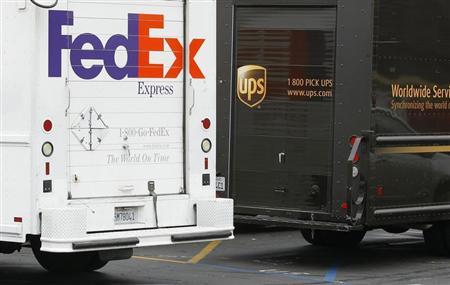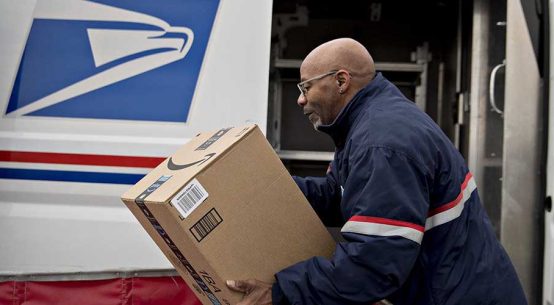A Federal Express truck is parked next to a UPS truck as both drivers make deliveries in downtown San Diego, California March 5, 2013. REUTERS/Mike Blake
The country’s two major integrators have released statements praising U.S. President Donald Trump for signing last week’s tax reform bill into law, arguing that the sweeping reductions of corporate tax rates – from 35 percent to 21 percent – will help the American economy, and result in increased investments in transportation and logistics.
David Abney, UPS Chairman and CEO argued that the lower corporate tax rate – the lowest since 1939 – would expand U.S. GDP, “which increases our customers’ businesses activities.”
Imagine your Ad placed here
“With the additional resources from tax reform, UPS will expand and accelerate investments in our people, technology, transportation fleets, facilities and value-generating customer services, which will further stimulate job creation,” Abney said.
“We applaud passage of the Tax Cuts and Jobs Act, the President’s signature, and look forward to full implementation of the Bill.”
UPS is in the process of a multi-year capital investment program to implement what it is calling the “Global Smart Logistics Network of the future,” which will increase capacity and enhance operating efficiency.
FedEx was equally enthusiastic about the bill’s passage, stating that it would “modernize the U.S. tax code and increase America’s competitiveness.”
FedEx has long supported tax reform efforts that offer pro-growth, pro-business solutions that it expects will power the economy, increase business investment and expand job opportunities.
Trump’s tax cuts are widely acknowledged to favour corporations over individuals – corporations, Trump said, “are literally going wild” about their reductions in the tax rate – so it’s not surprising that the tax reform injected an extra dose of Christmas cheer in executive suites at UPS and FedEx this season.
Follow us on TWITTER for more Logistics News Follow us on FACEBOOK for more Logistics News
However, anyone watching the headlines knows that the reform comes with its share of controversies. For instance, less taxable income could make it harder for Trump to pass his promised infrastructure bill, with its hefty US$1 trillion-dollar price tag.
In an op-ed published in the Wall Street Journal earlier this year, FedEx CEO Fred Smith and UPS’ Abney called for policy changes, including investing in infrastructure.











